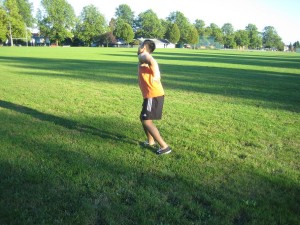A strain typically occurs when an individual excessively stretches or tears a muscle or tendon. The lower back and hamstring muscles at the rear part of the thighs are susceptible to strains. When it comes to a back muscle strain, it can put an individual suspended for days or even weeks, thus disrupting with daily activities at home or work. In addition, it also puts any recreational activity on hold. Even though mild and moderate cases respond well to home treatment, severe cases of back muscle strains might require surgical intervention.
What are the possible causes?
The usual causes of back muscle injuries such as muscle spasms or strains are due to instances where the back is used when performing heavy activities such as lifting furniture or yard work. A fall, accident or poor body mechanics while performing an activity can also instigate pain.
What are the effects?

Some of the signs and symptoms of back muscle strain tend to vary depending on the severity of the injury. Mild cases of back muscle strains can trigger tightness in the back but with insignificant swelling or difficulty walking.
As for moderate cases of back muscle strain, it can cause twinges of pain, swelling and difficulty walking. If the individual suffers from a severe back strain, it can cause significant swelling, intense pain, difficulty walking and a longer recovery period.
Home remedies of back muscle strain
The individual should be encouraged to rest for 1-2 days after sustaining a back injury. On the other hand, resting for prolonged periods is not advised since it can lead to the weakening of the muscle and delays the recovery process. It is also recommended to apply heat with a warm compress for 20-30 minutes at a time.
Lying on the floor with the legs propped on a chair, stretches or a massage can also help. There are also some over-the-counter medications such as acetaminophen or ibuprofen that can help reduce the pain. There are also topical rubs that contain ingredients such as capsaicin that dulls the pain.
When to seek medical care
If the home remedies could not provide enough relief to the back muscle strain, it is best to schedule an appointment with a doctor. The doctor might recommend other treatment options or refer the individual to a specialist.
A physiotherapist can prescribe a suitable rehabilitation program to hasten the healing which includes exercises, electrical therapy or ultrasound. In some cases, surgery might be required to repair a damaged muscle or tendon especially in severe cases of back muscle strains.
Considerations to bear in mind
Even though over-the-counter medications can ease the pain of a back muscle strain, they can trigger certain side effects such as bleeding or stomach upset, shortness of breath or nausea. These medications should not be taken unless a doctor is consulted if the individual has other illnesses or if he/she is using other medications or consuming alcohol.
